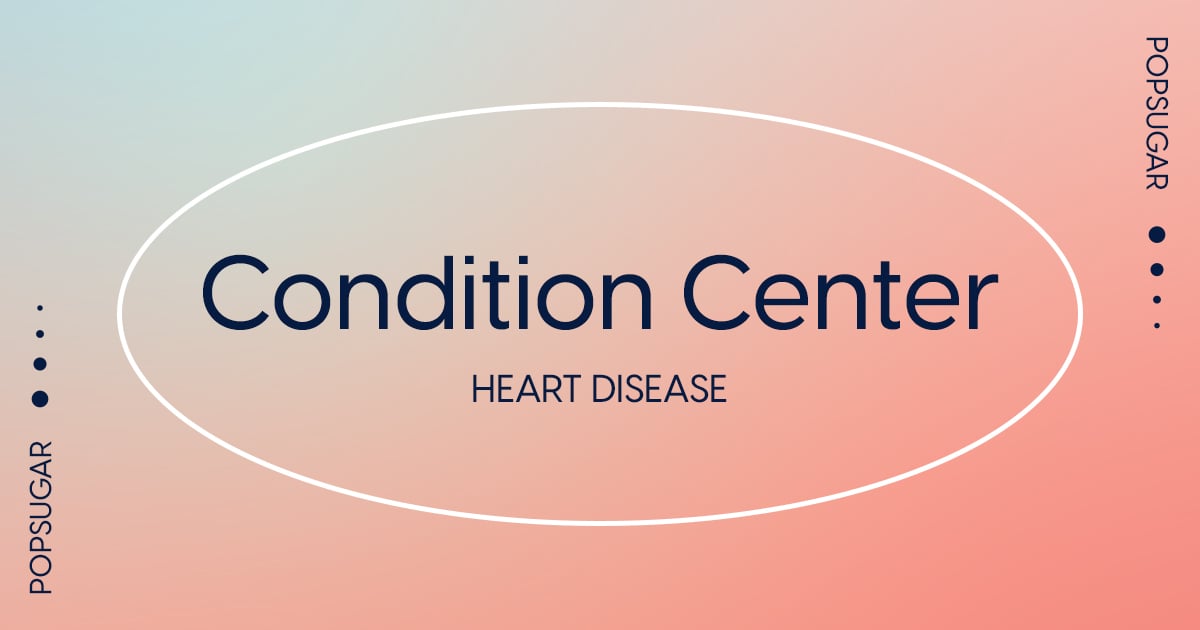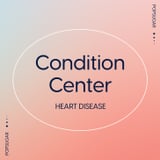This informational guide, part of POPSUGAR’s Condition Center, lays out the realities of this health concern: what it is, what it can look like, and strategies that medical experts say are proven to help. You should always consult your doctor regarding matters pertaining to your health and before starting any course of medical treatment.
Heart disease is a broad term used to describe several types of heart conditions – from irregular heartbeats (or arrhythmias) to congenital heart defects, per the Mayo Clinic. One person dies from heart disease every 33 seconds in the US, according to the Centers For Disease Control and Prevention (CDC), and nearly one in five deaths in the country are due to the disease.
While heart disease impacts everyone in the US (it’s the leading cause of death for men and women), it disproportionately affects Black Americans: heart disease causes nearly 23 percent of deaths in this population, per the CDC. Cases of heart disease are most common in the southern and central parts of the US.
So what causes heart disease? It can happen for a number of reasons, including genetics and behavior, or for no reason at all, says Nino Mihatov, MD, an interventional and structural cardiologist at NewYork-Presbyterian Brooklyn Methodist Hospital and an assistant professor of medicine at Weill Cornell Medical College. “Only one of those categories is modifiable – behavior,” he adds.
With that, it may be possible to lower your risk of heart disease. Here’s what doctors say people need to know about heart disease, plus the major risk factors for developing it and how it’s treated.
Understanding Heart Disease
Heart disease is an umbrella term used to describe a group of conditions that impact the heart, Dr. Mihatov explains. “Heart disease is a broad term that includes disease related to heart function, the blood vessels that supply the heart, the valves within the heart, rhythms of the heart, and the lining around the heart,” says Blair Suter, MD, a cardiologist at The Ohio State University Wexner Medical Center. “The most common type of heart disease is coronary artery disease, which refers to when the arteries around the heart develop blockages.”
Heart disease can impact everyone in the US, but it’s most common among Black Americans (who are 30 percent more likely to die from the condition), White Americans, and Native Hawaiian or Pacific Islanders, according to CDC data.
“Heart disease can affect everyone,” says Helene Glassberg, MD, an associate professor of clinical cardiovascular medicine at the University of Pennsylvania’s Perelman School of Medicine. “Most people think it affects older men, but coronary artery disease is the most common and it affects men and women equally.”
There is a wide range of potential symptoms with heart disease. The following are the biggest ones to have on your radar, according to cardiologist Jennifer Wong, MD, the medical director of noninvasive cardiology at the MemorialCare Heart & Vascular Institute in Fountain Valley, CA:
- Chest pain
- Shortness of breath
- Dizziness
- Fatigue
- Heart palpitations
What Causes Heart Disease?
There are a lot of potential causes for heart disease. Dr. Suter says these are the biggest risk factors:
- Diabetes
- Hypertension
- High cholesterol
- Smoking tobacco
- A family history of heart disease at a young age
- Other chronic illnesses
Having obesity and a sedentary lifestyle can also contribute to heart disease, Dr. Mihatov says.
The Best Treatment and Prevention For Heart Disease
There are treatments available if you happen to develop heart disease. While the right treatment often depends on factors like your condition and lifestyle, doctors say that some treatments are more common than others.
A treatment plan for someone diagnosed with heart disease often involves:
- Medication. “We have medications that can lower high blood pressure and cholesterol,” Dr. Wong says. Other medications can help with abnormal heart rhythms and heart failure, she says.
- Surgery or procedures. This is largely dependent on the type of heart disease you have, Dr. Wong says. However, some forms of heart disease may require ablation (small burns or freezes that cause scarring on the inside of the heart to help break up the electrical signals that lead to an irregular heartbeat), minimally invasive surgery, or open-heart surgery.
- Lifestyle changes. These usually include reducing saturated fats and sodium in your diet, avoiding tobacco products, and starting or modifying an exercise plan, Dr. Glassberg says.
Some forms of heart disease are preventable. “The most important thing you can do is eat a heart-healthy diet and exercise,” Dr. Wong says.
That means eating a wide variety of fruits and vegetables; eating whole grains; having healthy sources of protein like legumes, nuts, fish, seafood, and lean meats; keeping processed foods to a minimum; limiting added sugars; eating foods prepared with little or no salt; and limiting or avoiding alcohol.
For exercise, it’s important to aim to be active for 30 minutes a day for five days a week (or for 150 minutes a week), Dr. Suter says. This should be a mix of cardiovascular and strength training, he adds.
“Lastly, undergoing a regular physical examination with your primary care physician helps to screen for additional risk factors,” Dr. Mihatov says, “such as a family predisposition, high blood pressure, diabetes, or high cholesterol.”




